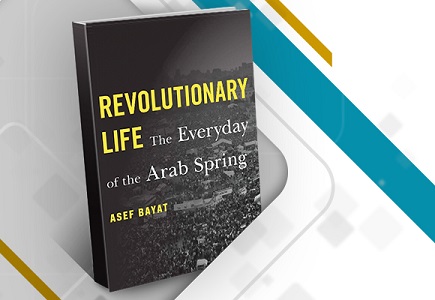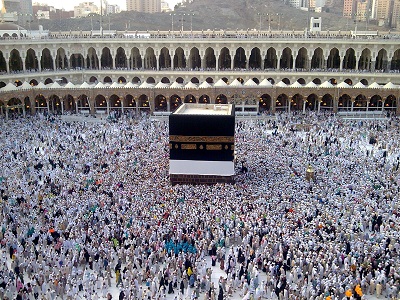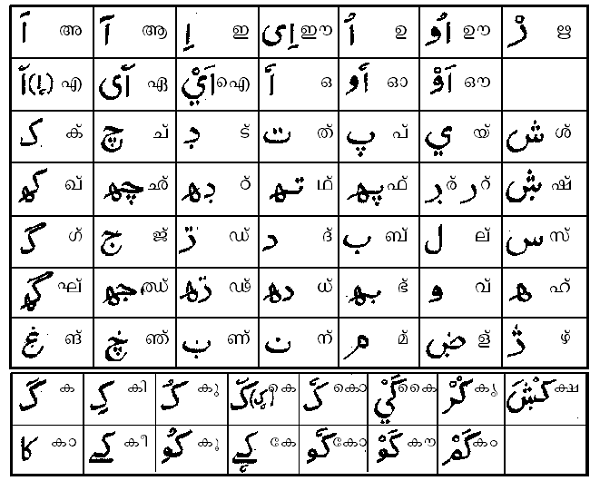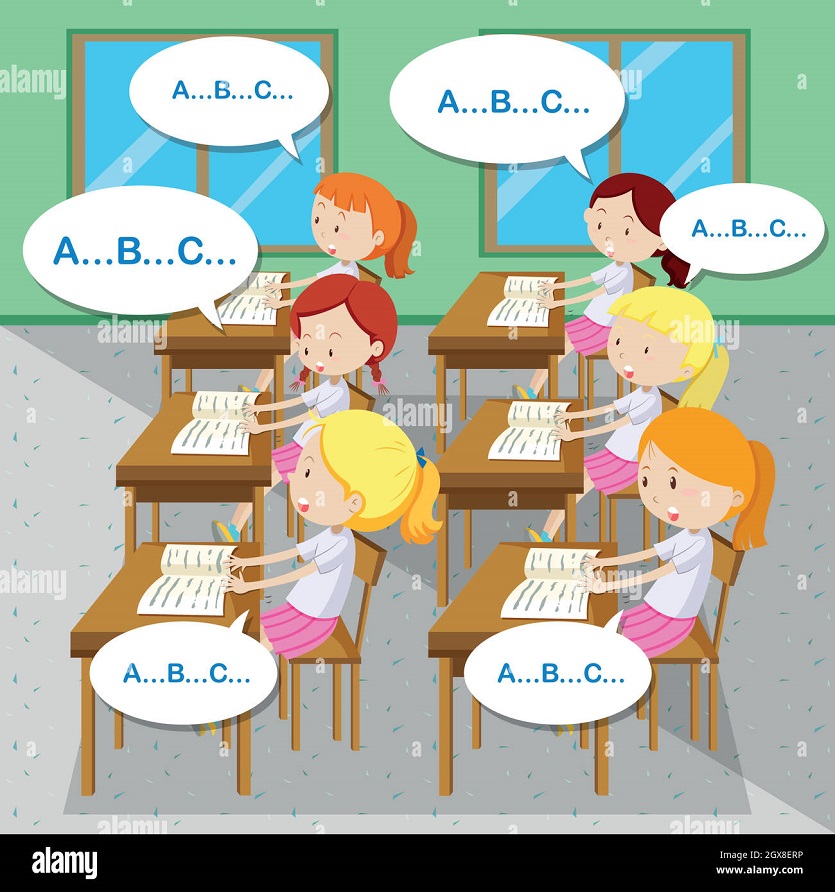MUSLIMS IN FRANCE TODAY
SUMNA SADAQAT
Scholar, Jawaharlal Nehru University
Volume No : 4
Issue No : 3
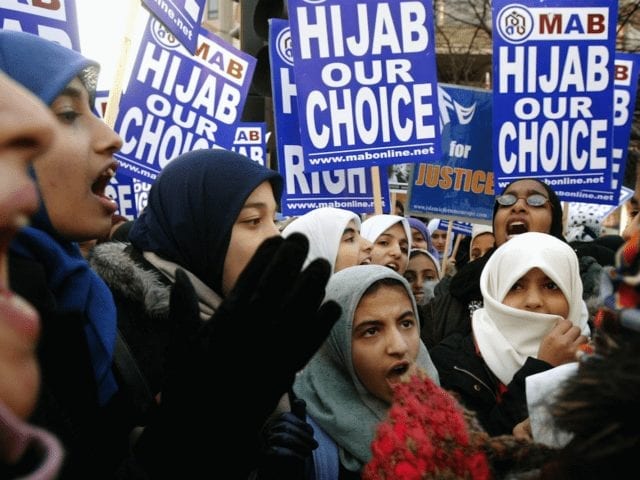
With the coming of the Prophet Muhammad (Peace be upon Him) in the 6th century, Islam spread as a dominant, powerful force not only in Arabia but spread its wings in other parts of Asia, Africa and Europe. It came to the world stage defeating mighty empires of Sassanid’s in the East and Byzantines in the west. For more than 10 centuries Muslims ruled over not just the territories but the hearts of people. New culture, new ideas and moral standards based on the principles of justice and truth were set up on one hand, while on the other, trade flourished, development reached its zenith and education was promoted. It was during these medieval ages that Greek, Indian, Chinese and other influential works were transfused in the libraries of Baghdad, Basra and Cairo by Muslims. This period is often referred to as the dark ages by the west quoting increased influence of religion over the state and society and no room for scientific studies to be undertaken. But terming an entire era as ‘Dark’, something that was not good for society and culture probably is due to the biased history of the west towards Islam. It is the same era where the European powers faced territorial decline along with reduced soft power of Christianity which had attracted millions of people earlier. With the Muslims or so called Moors reaching as far as Spain and ruling for a few centuries it was definitely not easy for the Christian clerics, nobility and the society in general to digest that now they had a rival, not only questioning the religious practices but changing the world order, swaying power away from their hands.
France is an impactful country, and its repute is not new, since the early rimes it has been the centre of attraction as well as power in Europe. The French revolution and philosophers of the time are taught to every student of social sciences. Without the ideas of liberty, equality and fraternity and its impact on the society no such study can be complete. These ideals influenced people all over the world, it laid the path for many countries to follow suit. But at the same time France did not lag behind in crashing the same ideals for people elsewhere. In the 19th and 20th century France colonised more than 20 states in just Africa and many more in Asia and North America . Being the ‘mother country’ it fulfilled the duty of conveniently oppressing the natives, imposing French language and culture in the acquired lands and hence violating ‘the freedom of expression’ of millions of innocent people which it now boasts to uphold.
Since the freedom of expression is on the bandwagon these days, I have tried to express myself on this pertinent issue, striving to collate some facts with the ongoing debate all over the world in this article, with a special focus on Muslims in France and the kind of treatment they have been and are being subjected to. The principal notion that needs contemplation with reference to Muslims in France is that they have encountered a systematic abasement since decades which has escalated Islamophobia not just in the region but across the globe. I believe it is important for all of us to ponder over the current state of affairs without biases, and call our attention to the hypocritical and fanatic attitudes of people around us, which has become a threat to the recognition of an entire community.
MUSLIMS IN FRANCE:
France has the maximum number of Muslims in Europe. In France, they make up about 8.8% of the total population approximately . Mostly Muslims migrated as labourers up until the 1970’s and 1980’s from the north African former colonies like Algeria and Morocco while some hail from nations like Tunisia and Turkey as well. With the French government allowing families of the labourers coming to France the Muslim population swell higher than before. Many of the Muslims today in the country are either a citizen naturally or are immigrants. There is a growing conversion rate also; people are embracing Islam rapidly in the country.
The government has tried time and again to attack Islam in the name of propagating a more widely accepted Islam, combating ‘extremists’ and preventing radicalism to perpetuate in the country. There has been a growing hostility towards Muslims in the country. The riots broke out in 2005 after three teens were chased by the police authority leading to the death of two of them who hid in an electricity circuit, in the suburbs of the capital city Paris. It triggered thousands of protestors on the street and against the discrimination faced by them. They expressed concern over their miserable life in ghettos which were less developed and secluded by the mainstream French society. It led to the death of hundreds of Arabians at the hands of the police. The protestors just demanded equal opportunity and a peaceful life free of suspicion and humiliation especially after the 9/11 attacks which projected Muslims to a public trial in almost all parts of the world.
The Muslims have at the same time tried to assimilate and adapt more to the native culture. As French is the most common and probably the only formal language used in the country, the Muslims (mostly Arabic speaking) have learned it and use it as the medium of communication not just in schools and other official institutions but even at home. Fully 77 % of the children of Algerians speak only French with their parents (compared with 79 percent of the French children of Spanish immigrants), and when just one parent is of foreign origin, those figures jump to 92 percent and 94 percent respectively. Muslim women have even contributed in the growth of the economy by working just like the French women. The inter religion marriages have also risen in the Muslim society with time, as people have become adopted a more individualistic approach with time.
But alienation has existed in the public life adversely affecting the employment rate of the Muslims, where in they have half a chance of getting the same job with having equal credentials as compared to a Christian. Although they constitute just 8.8% of the population, the unemployment rate is 14% which is just double to the national unemployment rate (8.3%).
Thus Muslims in the country struggle to live at par with the others, constantly fearing that they are not misunderstood by the others. The government’s stand on Hijab, Muslim schools and Islamic values has not been much liked by the community. The people fear that their indigenous culture and faith is questioned periodically even by the public.
HIJAB CONTROVERSY
The Hijab has been a controversial matter especially in Europe. Various countries like Denmark, Austria, and Belgium amongst others have undertaken measures and formulated an array of laws in this regard. France has been one of the most vocal countries in objecting to the Hijab and veil adorned by the Muslim women as a sign of radicalisation, different culture and backwardness. As far back as in 1994 the Education Ministry imposed restrictions on wearing veil in educational institutions. The ostensible purpose behind this was to empower women and impart modern education to them. But in reality, it was an attack on the identity of the Muslim women meant targeting religion and violating their right to freedom. Ten years later, the state banned every ‘conspicuous’ sign representing religion in state schools . France became the first country in Europe to impose a ban on wearing full face covering veils in April 2011 after the national assembly passed a bill earlier in 2010. The law not only restricted veils but also institutionalised it as a criminal offence, with a liability to pay hefty fines and imprisonment of up to one year depending on the age of the woman, if she is younger then punishment will be doubled. The one found guilty will also be educated in matters of citizenship in order to prevent her from doing so in future. This confined Muslim women to wearing veil only in religious places and in private which was seen as a threat to their identity and existence. It led to protests in Notre dame and arrests of many but to no avail. The matter was taken in the European Court of Human Rights which agreed to the defence provided by the French government. The government cleared its position by claiming that the veil was an obstacle in the way of coexistence and the idea of living together. According to the government, it led to disharmony and animosity between people, the idea of oneness was at stake and that is why it was necessary to impose such a ban. And from this point there has been no stop, women are now being looked down upon even for covering just their heads in public, whether it be at the airport or in the French parent club or on the streets.
Although the UNHCR has also condemned it as human rights violation in France referring to the statement issued in October 2018. It said that France did not provide enough reason for imposing such a ban and that this law played with the freedom of Muslim women who wished to wear the veil.
The pre-planned steps taken by the government authorities over a period of time have tried to shun multiculturalism in the name of assimilating ethnic communities and preventing terrorism. Both these thoughts are deep down communal and are completely against freedom of women, religion and the healthy engagement of societies with each other. Believing that assimilation of communities can only be undertaken at the cost of majority culture dominating over that of minority culture is flawed. One should have the freedom to wear, eat drink and practice what one likes. It should not be thought of as hijacking the dominant culture. People in power have always tried to frighten the majorities from the minorities in order to uphold uninterrupted power and history has umpteen examples, hence it becomes a responsibility of the people to accept differences and welcome new cultures, because it is only this humanitarian brotherhood which can lead to world progress and social growth.
It is absolutely vulgar on the part of authorities and people to think that prohibiting ‘Hijab’ is equivalent to preventing terrorism. This suggests that all the women who wish to cover themselves are terrorists, and hence they will be defined by the Oxford as the people involved in unlawful use of violence and intimidation, especially against civilians, in the pursuit of political aims. This is a deplorable situation, as one is being blamed of causing violence just because she practices one of the teachings of Islam.
CHARLIE HEBDO
A not so celebrated French ‘satirical’ newspaper Charlie Hebdo, featured with cartoons of Prophet Muhammad (Peace be upon Him) first in 2006. This came months after the ridiculed Danish newspaper came up with caricatures of the Prophet. This edition of the newspaper sold more copies than usual, but it led to widespread protests in France and elsewhere against the newspaper and its editor. The then French president also condemned the act by quoting that anything which could overt the religious provocation must be avoided. And when Sarkozy came to power, he supported the newspaper in the name of freedom of expression.
This did not stop here; more distasteful articles were published in 2012 and were in making in 2015 before the attack on the office of the newspaper led by two gunmen killing its editor and 11 other workers. Both the attackers were killed by the police shortly afterwards.
People started opposing the attackers and took to the streets, slogans of ‘Je suis Charlie’ (I am Charlie) became common, the authorities termed the attack as barbaric and extreme. The government started funding the newspaper and it led to an attack on the local mosques, with youngsters being arrested in suspicion of being involved in fundamental activities. The newspaper got more readers and became an international entity afterwards. There has been a record 70% rise in Islamophobic attacks against individuals and mosques after the incident .
The incident and its aftermath tend to suggest that there has been a deliberate attempt by the media to play with the sentiments of the Muslim community. Passing objectionable comments on the revered Holy Prophet Muhammad (Peace be upon Him) and making his caricatures is the height of insensitivity towards Islam. Using the Prophet as a centre of jokes and fun is just unacceptable to any Muslim be it a practicing or a non practicing Muslim. This episode marked that insulting, gushing out hatred and demeaning Islam is more preferred over the doctrines of showing mutual respect, peace and harmony. And the cherry on the cake is that it has been backed by the government which distinctly proves that there is no respect for freedom of religion, rather freedom to practice Islam fearlessly.
OCTOBER 2020
On 2nd October 2020 the French president Emanuel Macron delivered a speech in which he proposed to enhance the 1905 laws on laicite or secularism. He remarked that the authorities would do everything to free the public life and education from the clutches of religion. He further added that Islam is a religion that is in crisis in all over the world . This statement is enough to give the message that it is not just radical Islam that he wishes to curb as was infused in the mindsets of people after 9/11 but it is the entire religion that needs to be changed according to the culture of the country, to fit in, in the French society.
The address confirmed the far-right approach adopted by the president and it was soon proved beneficial for the ideology as a school teacher, Samuel Patty showed cartoons of Prophet Muhammad (Peace be upon Him) to his students defaming the Prophet in the name of freedom of expression. On 16th October beheading of the school teacher was undertaken by a Chechen teen for disrespecting the Prophet. He was soon shot down by the police and died of multiple injuries. The police arrested nine others alleged of being linked to the murderer.
The president supported the school teacher and commented that “We will continue… We will defend the freedom that you taught so well and we will bring secularism. France would not give up cartoons, drawings, even if others back down” . This has led to an outrage amongst the Muslims, as they see this as a disregard of the Holy Prophet by the President of a state. Harsh stands have been taken by Turkey, Pakistan and Iran condemning the ruthlessness of the French president. Turkish president went on to say that Macron needed a mental check-up. Other gulf and Southeast Asian countries have also shown lament over the caricatures of the Prophet Muhammad (Peace be upon Him) being promoted by the French. People are leading demonstrations in Palestine, Libya, Bangladesh burning French flags and the photo of the President. They demand a boycott of French products. Many companies and trade unions in Kuwait, Qatar, Tunisia and elsewhere have withdrawn French products from their stores until further notice and have claimed to get better national alternatives for French products as quickly as possible. The organization of Islamic cooperation, headquartered in Jeddah has also condemned France over continuous attack on Muslims by insulting their religious symbols.
France has made a very aggressive stand, by continuing to flash similar cartoons in government buildings and elsewhere. The European Union and other countries like Greece, Germany and Belgium have supported France and condemned the remarks of Turkish president. Trends in support of the president are being carried out in India as well. The French government has called off his diplomat from Ankara embassy while it has also urged the Middle East nations not to boycott its products, claiming that only a radical minority is doing so .
This episode has led me to wonder whether sacred beliefs can be trampled with for just exercising the right to freely express oneself. This debate has always existed but for political and international authorities to freely and openly support the ones blamed of walking over centuries old religious faith of a community having the second largest population in the world is shocking. Islam being a monotheistic religion has forbidden portraits and depictions of the Prophet, with no such picture found after decades of archeological studies by historians since earlier times, for such a people to accept the caricatures of the Prophet Muhammad (Peace be Upon Him) is unconditionally out of question. And this is not a new adventure, whenever any such kinds of events have taken place; Muslim anger has been evidently inflexible because this is not just disrespect towards them but is a blasphemous act. On the whole, religious differences must be accepted, along with considering at least the fundamental values of each faith, not crossing the line as happened in this case. Insolent mannerism merely for laughter and fun can never be approved of.
It has been a long time since states have separated themselves from religion, and this happened in France way back in 1905. But does that really mean that religions will not be protected anymore, should we infer that if a community is attacked and harmed on religious lines then it will have no judge to go to. Nobody will come to rescue religious principles amidst secularism has become the common norm.
All of us need to introspect ourselves in this regard, are we really sacrificing our faith, traditions, identity, mutual thoughtfulness and age-old values in the name of freedom of expression, secularism, state-religion separation and liberty. We must realize that we are just running into another extreme where our identities are getting blurred by the day. We need to choose whether we want to be vibrant as the rainbow or dark as the night sky.
FREEDOM OF EXPRESSION VS FREEDOM OF RELIGION
The idea of freedom of expression is to be free to say what one wishes to, to be liberated enough to put across opinions and thoughts, to be capable enough of sharing beliefs and practices. But the use of the term to justify constant insults and disrespect to a particular religion or any person for that matter should not be acceptable. One cannot freely rampage over one’s belief and faith to quench the thirst of expressing opinions. It is not wise to accept derogatory remarks on any religious figurehead in the name of satire. To hurt somebody by using one’s freedom to express is certainly not what the social morals have taught us after all these years of technological advancement and civilization. What happened in France and what is currently happening is not just an ideological conflict between two groups in the country, but is an outright attack on Islam, on the principles and doctrines of the religion itself, on the identity, dignity and existence of a Muslim in the country. The stiff attitude of the western world has enhanced the question of extant of Muslims not just in France but all over the world. The notions of liberty and equality seem to have been shaken deeply by the recent events, Muslims live in a state of dismay and suspicion, they feel that they might never be welcomed in the West with their values and principles, they will always be looked down at, and they will probably never enjoy the same liberty and equality that their other religious counterparts enjoy. A sense of alienation will be strengthened with the countries trying to make more homogeneous societies based on their preconceived notions. And this will only lead to more separation rather than integration of people and society. It is important that we as a civilization reflect upon our changing morals and values and promote integration in the greater interest of the people and society.
All this leads us to think, is it wrong to be a Muslim in the west today? Is it wrong to be proud of your religion? Is it incorrect to cherish your faith? Is it erroneous to condemn impudent attitudes? No one can answer these relevant questions except our own society, because at the end it is the people who can make, break or justify any idea or thought.
REFERENCES:
• https://www.worldatlas.com/articles/former-french-colonies.html#:~:text=Between%20the%2019th%20and%2020th,million%2C%20half%20of%20British%20India
• https://www.pewresearch.org/fact-tank/2017/11/29/5-facts-about-the-muslim-population-in-europe/
• https://www.brookings.edu/articles/islam-in-france/
• https://www.brookings.edu/wp-content/uploads/2016/07/integratingislam_chapter.pdf
• https://indianexpress.com/article/explained/france-problem-with-the-burqa-ban-islam-muslims-islamophobia-608
• https://www.bbc.com/news/world-europe-32053906
• https://www.aljazeera.com/news/2020/10/2/macron-announces-new-plan-to-regulate-islam-in-france
• https://indianexpress.com/article/explained/simply-put-france-macron-and-islam-6906200/
• https://www.aljazeera.com/news/2020/10/25/social-meboycott-french-products-online-against-macrons-islam
• https://www.bbc.com/news/world-europe-54683738

